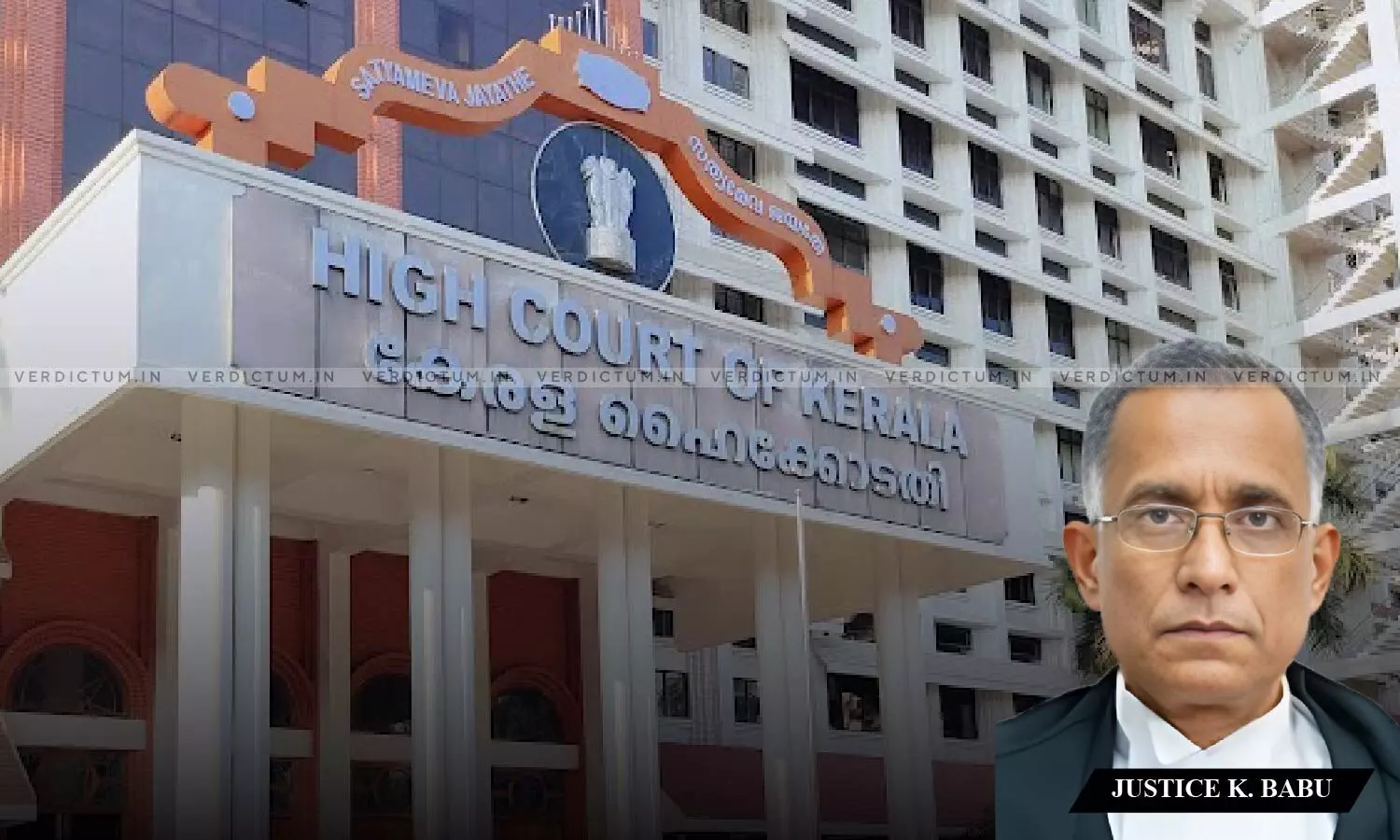
No Useful Purpose Is Served By Allowing 12-Year-Old Proceedings To Continue: Kerala HC Dismisses Section 498A Case Against Husband
 |
|The Kerala High Court allowed a Criminal Miscellaneous Petition, seeking to quash an FIR of 2011 filed by an ex-wife against the Petitioner under Section 498A of the Indian Penal Code (IPC), even though the ex-wife had applied to withdraw the FIR after settlement of the divorce proceedings.
The Bench of Justice K. Babu emphasised, “Speedy investigations and trial are mandated by the letter and spirit of the provisions of the Code and the constitutional protection enshrined in Article 21 of the Constitution”.
The Court, further observed, “no useful purpose is likely to be served by allowing the criminal prosecution based on FIR No.865/2011, the investigation of which commenced twelve years back but reached nowhere, to continue. When the chances of ultimate conviction are very bleak, continuation of prosecution against the accused will result in an abuse of the process of law”.
Advocate K. Rakesh Roshan appeared for the Petitioner and Public Prosecutor N.R. Sangeetharaj appeared for the Respondent.
The Petitioner was married to Respondent No.4 and had a child. Respondent No.4 filed a complaint against the Petitioner and others, which led to the police registering a crime in June 2011. Due to increasing differences, they decided to divorce after going through mediation in August 2014. The Petitioner paid maintenance and other expenses for respondent No.4 and their child. Respondent No.4 asked the Station House Officer to close the case as they had settled. However, they were informed that the case file was sent to the Superintendent of Police (SP) as the incident happened within the territory of Mundgod Police Station in Karnataka. When the Petitioner applied for a passport, they were informed they were listed as an accused in the FIR under Sections 498A and 34 of the IPC filed by the Angamaly Police Station. Therefore, the Petitioner filed a Petition before the High Court to quash all proceedings related to the registered crime.
The Court noted that Article 21 grants every person the fundamental right not to be stripped of their life or freedom except through a process established by law. This process should not be merely symbolic, but it must be reasonable, fair, and just. As a result, the right to a speedy trial is an obvious consequence.
The Court further stated that any procedure that fails to guarantee a reasonably prompt trial cannot be considered reasonable, fair, or just and would violate Article 21. The Court referred to the Supreme Court Judgement in the cases of Maneka Gandhi v. Union of India and Another [(1978) 1 SCC 248], Hussainara Khatoon and Others v. Home Secretary, State of Bihar [(1980) 1 SCC 81] and Abdul Rehman Antulay and Others v. R.S.Nayak and Another [(1992) 1 SCC 225].
“The Honourable Apex Court had observed that Article 21 confers a fundamental right on every person not to be deprived of his life or liberty except according to procedure established by law; that such procedure is not some semblance of a procedure, but the procedure should be 'reasonable, fair and just'; and therefrom flows, without doubt, the right to speedy trial. It was also observed that no procedure which does not ensure a reasonably quick trial can be regarded as 'reasonable, fair or just' and it would fall foul of Article 21. The Apex Court clarified that speedy trial means reasonably expeditious trial which is an integral and essential part of the fundamental right to life and liberty enshrined in Article 21 (See Maneka Gandhi v. Union of India and Another [(1978) 1 SCC 248], Hussainara Khatoon and Others v. Home Secretary, State of Bihar [(1980) 1 SCC 81]”, the Court observed.
The Court placed reliance on Supreme Court Dictum in the case of P.Ramachandra Rao v. State of Karnataka (AIR 2002 SC 1856)] and observed that the stress, financial burden, and emotional strain that a person faces when accused of a crime can be overwhelming, especially when combined with lengthy delays in the legal process. Recognising this, the country's constitutional courts have upheld the right to a speedy trial as an essential aspect of fair, just, and reasonable legal procedures, as outlined in Article 21, the Court added. The Court noted that this protects the accused's ability to mount an effective defence and prevent any impairment of their capabilities.
Accordingly, the Court allowed the Petition and quashed all proceedings against the Petitioner.
Cause Title: Greik Xavier v. Sub Inspector Of Police